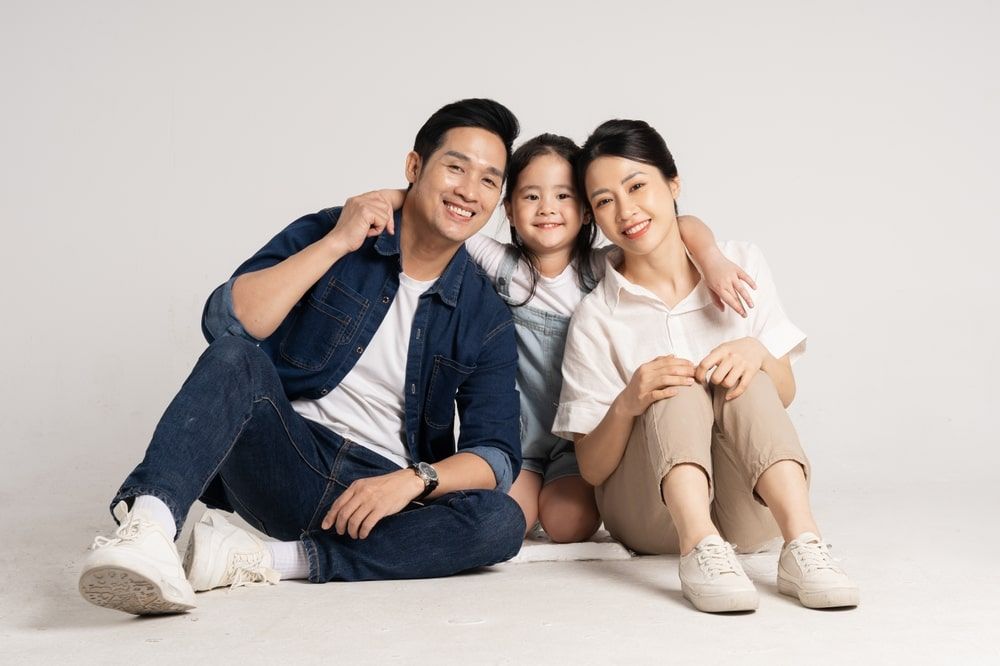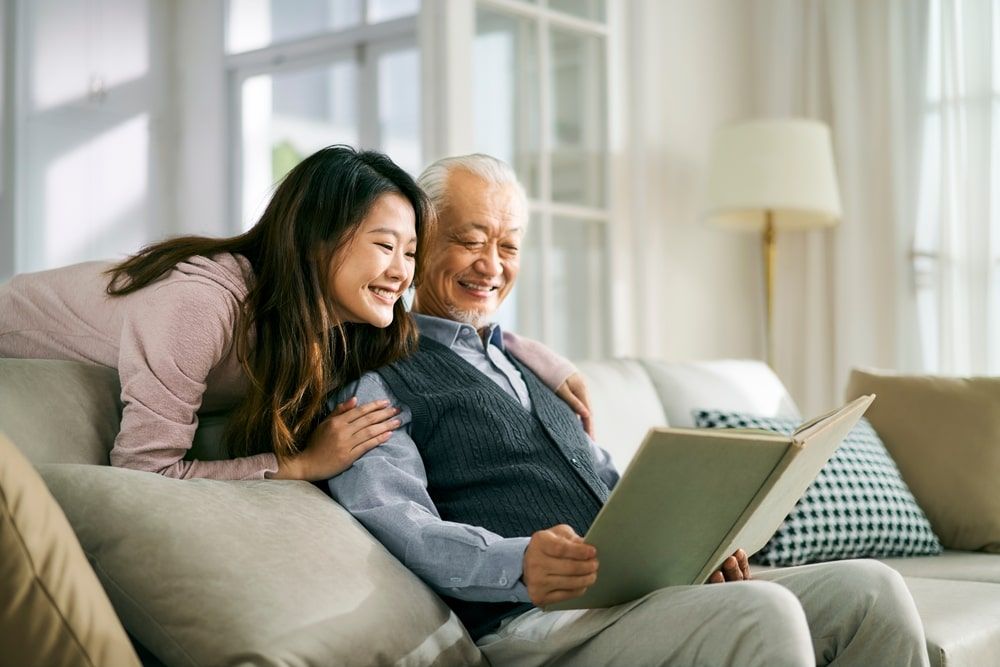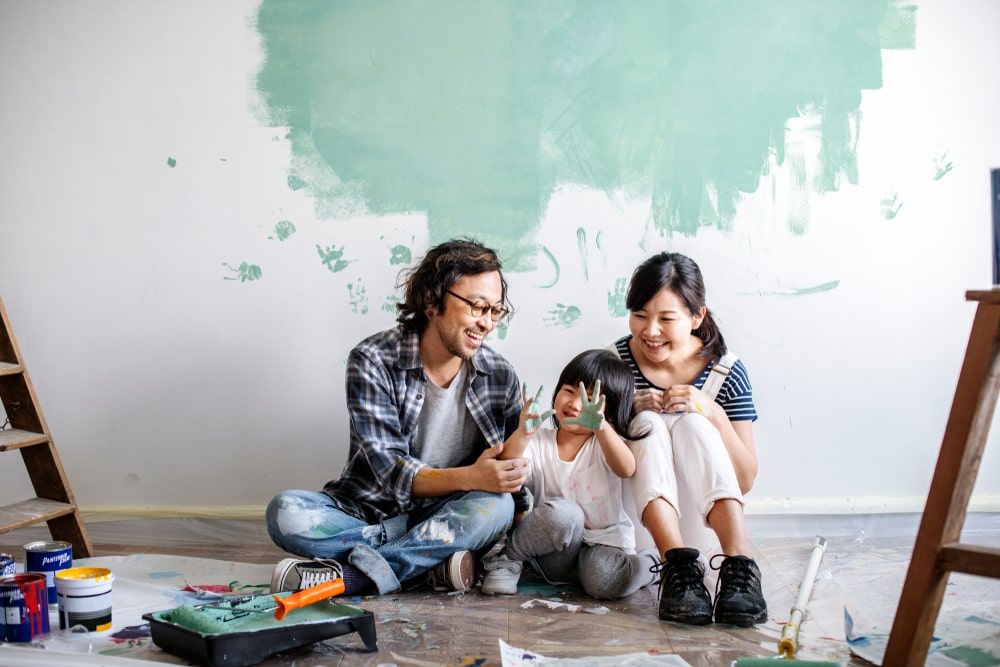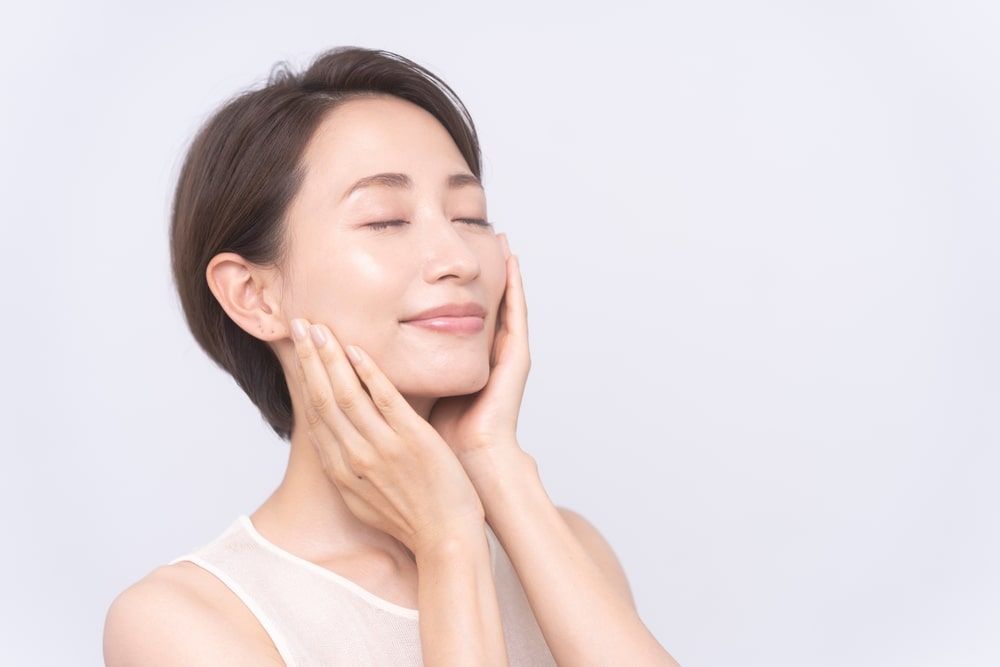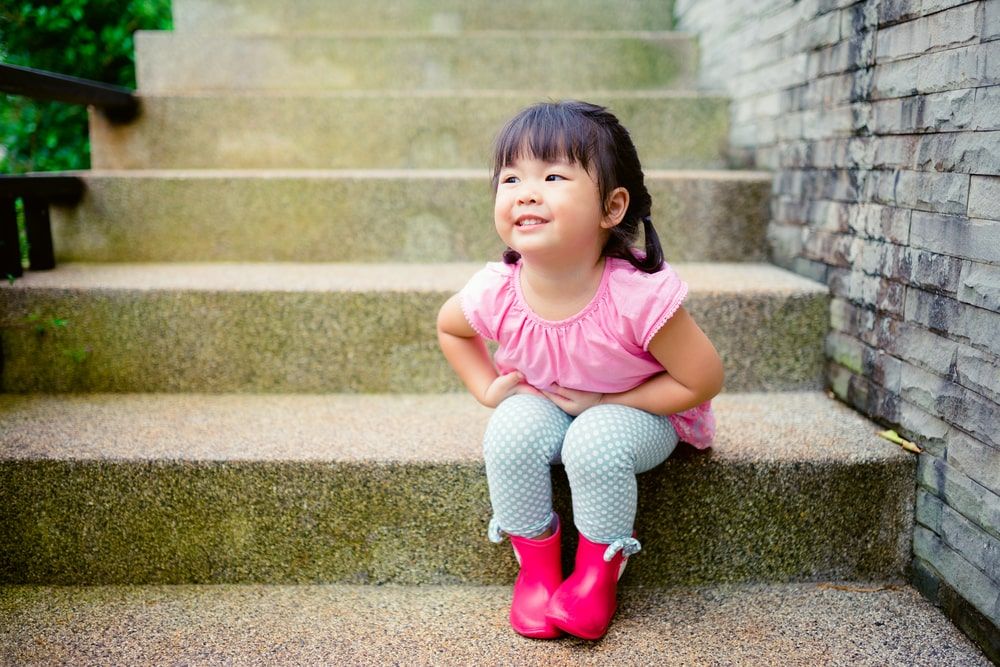Understanding and Overcoming Generational Anxiety in Asian Households
In the fast-paced, high-expectation world of Asian households, an unspoken but powerful legacy often lingers like a shadow: generational anxiety. It’s the subtle inheritance of not just the family’s prized possessions but also their worries and fears, especially the relentless pursuit of success and the fear of falling short. From the weighty expectations of academic excellence to the ever-present pressure to excel in careers and secure societal acceptance, generational anxiety leaves no aspect of life untouched. But it’s not just about the ‘what’ – it’s also the ‘how.’ It’s about adopting the emotional dance moves passed down from one generation to the next, even if those moves lead to anxiety. In this blog, we’ll journey through the depths of generational anxiety in Asian households, examining its roots, the impact it has, and, most importantly, how to break free from its grasp.
What is generational anxiety?
Generational anxiety, or the anxiety that gets handed down like a family heirloom, is all about how stress and worry seem to be part of the family legacy. It’s like inheriting that vintage rocking chair from your grandma, but instead of comfy memories, you get anxious vibes.
Generational anxiety is the notion that anxiety and stress patterns are the unwelcome gifts that keep on giving within a family. It’s like the older generation passes down a recipe, not for a tasty dish, but for relentless anxiety, and the younger generation ends up baking that same anxiety cake without even knowing it.
Imagine this: Grandma’s secret ingredient for her famous pie isn’t love; it’s anxiety. She frets about everything – bills, work, health, you name it. She can’t turn off the worry switch. Her kids grow up watching this anxiety-fueled cooking show and learn the recipe by heart. So, when they become parents, they naturally start adding a pinch of anxiety here, a sprinkle of stress there, to their own lives and their children’s lives.
But, hold on, it’s not like this anxiety is passed down genetically like your eye color. It’s more like an invisible hand-me-down playbook of emotional reactions, thought patterns, and coping mechanisms. It’s not about inheriting an anxiety disorder; it’s about inheriting the habits that can make you more prone to anxiety.
Generational anxiety isn’t just about the “what” but the “how.” It’s not necessarily the anxiety itself that’s inherited, but the way the family deals with it. It’s like learning the “family dance” when dealing with stress – you do it because that’s what you’ve seen, even if you don’t know there are other dance moves out there.
These family dance moves can include high expectations for success, a fear of failure, that nagging feeling that you’re never quite good enough, and the inability to talk openly about emotional struggles. It’s like everyone’s dancing around the elephant in the room, pretending it’s not there.
Understanding the Generational Anxiety in Asian Households
Like we shared before, generational anxiety in Asian households is like a stealthy family heirloom that just won’t quit. It’s a bit like a hand-me-down jacket, except in this case, it’s emotional baggage. The anxiety, often carried by one generation, gets sneakily passed down to the next – typically from parents to their children. This anxiety is all about the relentless pursuit of success and that looming fear of falling short when it comes to certain expectations. We’re talking about the big ones: academic achievements, career triumphs, and the all-important societal acceptance within the Asian community.
Now, what’s the secret sauce that makes this inheritance so potent? Two words: “saving face.” In many Asian cultures, maintaining a squeaky-clean image within the community is practically a full-time job. And this often means putting a lid on personal struggles, including mental health issues, to dodge the embarrassment bullet. Kids growing up in this environment get a front-row seat to the act of suppressing emotions and may end up thinking they, too, should zip their lips about their emotional rollercoasters.This cycle contributes to Asian anxiety, where the pressure to conform and succeed becomes a significant source of stress and emotional turmoil.
Historical and Cultural Roots of Generational Anxiety
To unravel the mysteries of generational anxiety, we’ve got to do some time-traveling back into history and peek into the cultural treasure chest. Many Asian countries have a history of placing a high value on education as the golden ticket to social success. It’s like the dream of providing a better future for the next generation is hardwired into the culture. This drive for success has deep roots, thanks to the influence of Confucian values, which bang the drum for family, hierarchy, and individual achievement.
The expectation of academic excellence is where it gets real. This is linked to the whole package deal of economic stability. Many Asian immigrants who ventured to Western shores were on a mission to secure financial prosperity for their families, through their children’s education and eventual careers. This backdrop can squeeze immense pressure onto the younger generation to not just succeed academically but to also tick off their parents’ dream checklist.
The Academic and Professional Pressure Cooker
Asian households often kick the pressure cooker up a notch when it comes to education and career achievements. It’s like everyone’s chasing the golden goose, and those high grades and VIP invitations to prestigious institutions are the magic keys to the kingdom of success. It’s not that these goals are inherently bad, but when the pressure gauge shoots off the charts, it’s a recipe for anxiety overload.
And then there’s the “model minority myth” stereotype, which is like a relentless hype machine portraying Asians as superhuman overachievers. It’s as if there’s an invisible crown and cape involved. This stereotype can make individuals feel like they’re expected to wear that crown and don the cape 24/7. The fear of disappointing their families or communities if they don’t soar to the stars in every area of life adds jet fuel to the anxiety fire. The pressure is often compounded by intergenerational trauma, making this cycle of pressure and anxiety can become a never-ending loop with long-term impacts on mental well-being.
The Hushed Conversation on Mental Health
A monumental roadblock in addressing generational anxiety is the Godzilla-sized stigma surrounding mental health within Asian communities. Let’s be real, conversations about anxiety, depression, or seeking professional help are like the elephant in the room – everyone sees it but pretends it’s not there. Mental health issues are often seen as kryptonite, a sign of weakness or instability that can crumble reputations and bring shame upon the family. People are more likely to be tight-lipped about their struggles, fearing they might get ousted from the superhero league.
But wait, there’s a ray of hope breaking through the clouds. Breaking free from this stigma is like opening the windows to let some fresh air in. Initiate conversations about mental health within your family, and you’re basically a pioneer in this uncharted territory. It might be challenging, but it’s also super transformative. By sharing your own experiences and feelings, you’re not just breaking the stigma; you’re building a support network that can help you and your family navigate the stormy seas of anxiety.
Breaking the Cycle of Generational Anxiety
Breaking free from the cycle of generational anxiety in Asian households is no small feat, but it’s entirely achievable with the right approach. Here’s how:
Open Communication: Think of initiating open conversations about mental health in your family as detonating emotional dynamite in a fortress of silence. It’s like shattering the walls of taboo that have kept mental health discussions at bay for far too long. Be the spark that ignites these conversations, sharing your experiences, fears, and vulnerabilities. By doing so, you become the trailblazer, allowing others in your family to follow suit. Over time, this sparks a revolution against the stigma surrounding mental health, creating a safe space for everyone to share their feelings and experiences, free from judgment. For those tough conversations, don’t hesitate to bring in a mediator, like a counselor or therapist, to help keep the dialogue productive and supportive.
Seek Support: Navigating the labyrinth of anxiety is like being on a treasure hunt in uncharted territory. Seeking professional support by searching “asian therapist near me ”is your treasure map. Mental health professionals are experienced guides who understand the cultural landscape and can customize their guidance to your unique needs. Working with these experts is like upgrading from a paper map to GPS. They help you uncover the roots of your anxiety and provide you with invaluable tools and strategies to conquer it. Seeking professional help isn’t a sign of weakness; it’s a bold step toward breaking free from generational anxiety and taking control of your mental well-being.
Set Realistic Expectations: It’s time for a makeover of expectations! Forget the pursuit of perfection; it’s like swapping your Cinderella glass slipper for a comfy pair of sneakers. You don’t need to squeeze into an unrealistic mold. Embrace the realization that each person has their path in life, unique passions, and dreams. Defining your version of success is like becoming the architect of your own dreams, and that’s liberating. It allows you to shed the heavy cloak of external expectations and step into a life where you call the shots.
Self-Care: Prioritizing self-care is like giving yourself a VIP ticket to your well-being oasis. Mindfulness, meditation, and deep breathing exercises are like your backstage passes to inner peace, helping you stay grounded and banish anxiety. They’re like a spa day for your soul in the middle of a chaotic world. Exercise isn’t just physical; it’s your mental high-five. It’s like a happiness injection that lifts your mood and keeps stress at bay. And don’t forget your hobbies – they’re your escape routes to pure joy, a chance to relax, recharge, and reclaim your passions. Self-care is your daily dose of sunshine, helping you maintain a healthy balance amid life’s challenges and expectations.
Community and Connection: Connecting with others who share your journey is like discovering a hidden treasure chest of support and shared wisdom. It’s like finding a group of fellow superheroes in the same league. Joining support groups or engaging with peers who understand your battles creates a fortress of camaraderie. Sharing stories, swapping coping strategies, and celebrating each other’s victories is like being part of an unstoppable alliance. It’s the virtual group hug you need to remind you that you’re never alone in your struggles. These connections are your anchors of strength, offering a network of allies who get it and stand by your side through thick and thin.
Unpack the hidden burdens of generational anxiety within Asian households and pave the way for healing and growth – reach out today!
Navigating generational anxiety within Asian families can feel like an uphill battle, but at Uncover Mental Health Counseling, we’re committed to helping you unravel the complexities and find peace within yourself. Here’s how you can begin your journey:
- Set up a Free 15 Min Consultation: Reach out to Uncover Mental Health Counseling to start your adventure with a complimentary consultation call. Let’s lay the groundwork for your transformative experience and provide a safe space for you to share your story.
- Work with NYC Anxiety Therapist: Collaborate with one of our culturally sensitive NYC therapists for a profound session tailored to your specific challenges. We have asian therapists in NYC that can help. Together, we’ll peel back the layers of anxiety and cultural expectations, guiding you towards self-acceptance and inner peace.
- Overcome Anxiety: Prepare to immerse yourself in a supportive environment where your cultural background is honored and understood. Our team offers motivation, unwavering support, and a variety of tools designed to help you navigate generational anxiety and embrace your authentic self.




























